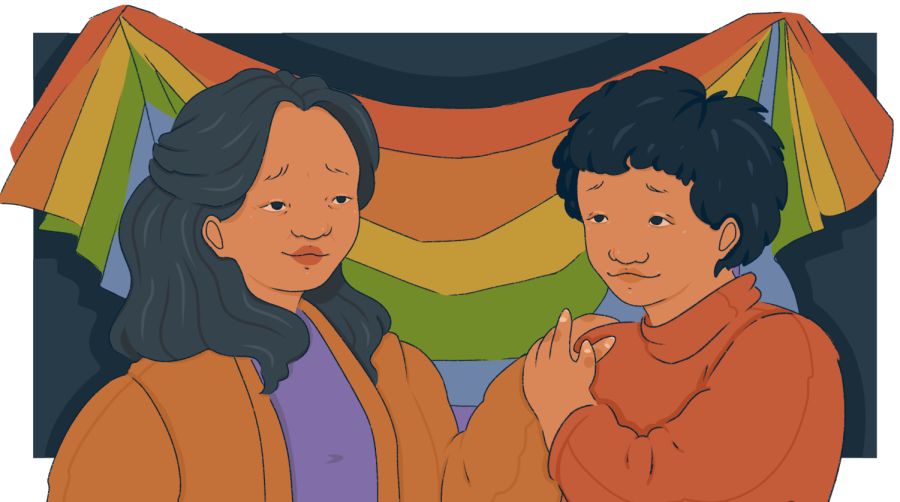GSC creates event for Asian American queer students
March 9, 2022
Growing up, Joshua Lattao said he always felt split between his queer and Filipino American identities. Until coming to college and finding a supportive community, he believed he had to choose and present himself as either one or the other.
“Queer spaces can be very white male-dominated,” said public health senior Lattao. “In Asian communities, queerness is marginalized or frowned upon sometimes. People do live at the intersection, and it’s important for people to feel seen and heard.”
The Lotus Project is an initiative of the Gender and Sexuality Center which strives to develop community, connection and healing among Asian American LGBTQIA+ people. On March 2 the initiative held a screening and conversation event titled “How do you say queer in …” at the William C. Powers, Jr. Student Activity Center. Lilli Hime, GSC Program Coordinator and Lotus Project organizer, said the project aimed to create a safe space for Asian American queer identifying students.
“It’s not easy for queer and trans people of color to find community,” Hime said. “You often don’t know if you can bring your full self — your Asianness (and) queerness into a space.”
The event, which brought together an estimated 20 attendees, consisted of a mini-documentary screening of “Unspoken,” and break-out small group discussions. Group conversations explored the unique experiences of LGBTQIA+ Asian Americans and the challenges of talking to immigrant parents about queerness, gender identity and sexuality.
“Just in the ways that we say Asian people aren’t a monolith, (that) applies to queer people as well,” Lattao said. “Coming out or queer narratives are not monolithic either. We all have different experiences.”
“Unspoken” features six queer and trans Asian Americans from different countries, who read coming out letters they wrote to their parents. The content touches on topics such as generational differences, language barriers and acceptance. Hime said the event’s name, “How do you say queer in …,” took inspiration from the language barriers present when coming out to Asian parents.
“We came up with this idea together thinking about the way being queer and Asian sometimes leaves you grasping for translations, trying to share who you are in languages you’re still learning or may not have the words to describe you yet,” Hime said.
Hime said the Asian continent encompasses over 48 different ethnicities and over 300 languages and dialects, and “Unspoken” reflects the diversity within Asia, featuring people from Sri Lanka to Myanmar to China and Korea.
“We’re always trying to ensure that these conversations, especially with Asians and Asian Americans, (are) not just overly representative of a specific region or culture,” Hime said.
The event was co-sponsored by the Center for Asian American Studies and
Silk Club, an Austin-based creative organization which serves Asian and Asian American women, non-binary and genderqueer people. Sandra Tsang, an advertising senior and president of Silk Club, said sharing knowledge on navigating life to those with shared identities is vital to making them feel like they’re part of a community.
“Oftentimes, it’s not even necessarily about finding a solution,” Tsang said. “It’s more about hearing and learning from one another. Especially within Asian American communities, there is a stronger barrier where we’ve been trained and socialized to be quiet and not bring things up, to hide them and suppress them.”
Hime hopes after the event, student attendees feel supported and accepted in their identities.
“I hope students will walk away knowing that they’re not alone in their queerness and their Asian-ness,” Hime said. “I hope they’ll walk away feeling community in the very intersection of identities where they might have felt isolated before.”












